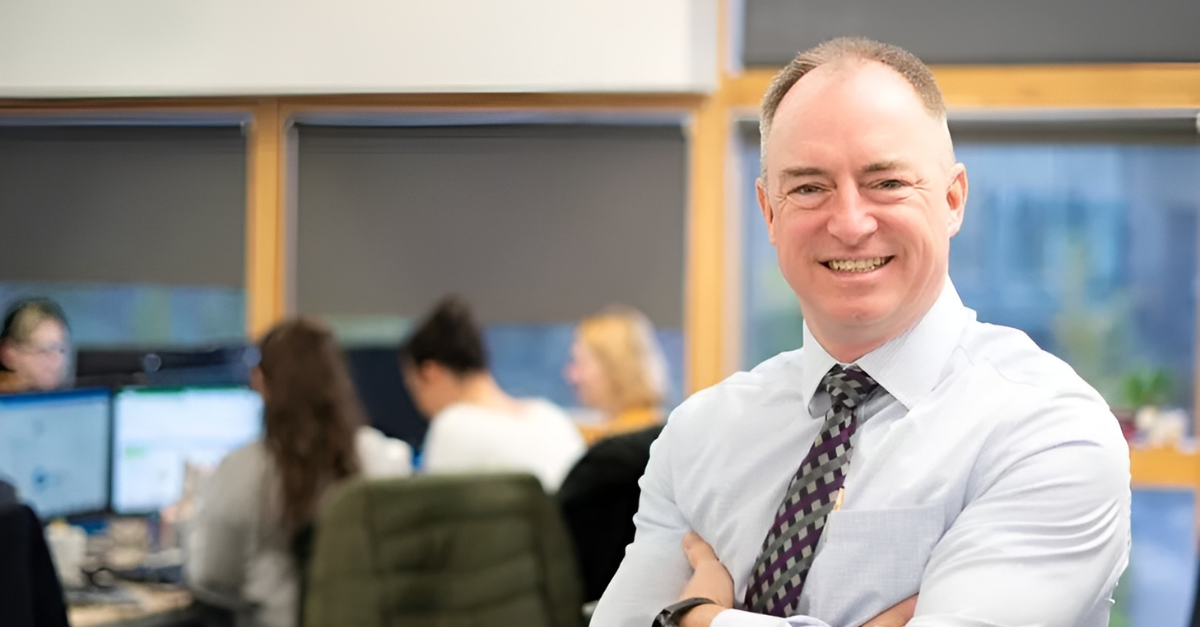Having provided people development solutions for companies around the globe, Insights Group founder Andrew Lothian is advising Scottish businesses to ensure employees are well-versed in their strategic vision for the future.

All careers start somewhere. For Andrew Lothian, founder of Insights Group, a global leader in learning and development consultancy, it began with a computer science degree.
"I did my degree, then went to London in search of fame and fortune," he recalls. Lothian was offered a position in a merchant bank. "As intellectually stimulating as it was, I worked for a short time in the bank's fixed interest group as an economist and decided that this was not for me."
He remembers asking his boss what he needed to do to progress in the bank. His boss replied: if you could beat the client's other investment returns by half a percent, that would do it.
"That just did not seem to me to be a reasonable or a sufficient life goal. Even then, I was intrigued by human development and by the personal goals that people set for themselves to get to where they dream of going," he notes.
He left the bank and joined his father in a partnership that focused on the field of personal development.
"It took us a whole decade to learn what not to do. We worked for a lot of corporates and we paid a lot of attention to understanding learning styles, and why some people were supremely effective in what they were doing, and others weren't.
"For us, it was all about insight and discovery. We wanted to build a learning model that would be valid and pragmatic and that could be applied in a variety of situations.
"In doing this, we looked closely at how people succeeded in bringing their skills to bear and we worked on a number of models. We have refined the insights we acquired over the last 25 years and this is the core of the model we provide," he explains.
So, what makes the difference between success and failure? "Everything starts with the individual. The whole idea, for us, was that this is basically about an inner journey, coupled with the understanding that no person is an island."
Applied in the context of an organisation that is looking for efficiency and improvement gains, this comes down to having simple, but not necessarily easy conversations about what inspires or irritates a range of staff members. The outcome of this is a much better understanding of the dynamics that drive the organisation towards its goals or that hinder progress towards those goals.
"One of the problems that organisations face when it comes to training is how to solve the paradox that is: what happens if I spend a lot of money training staff and they leave, versus what happens if I spend nothing and don't train them, but they stay?" he notes.
In the latter case, clearly, what you are looking at is a lot of factors that are going to gum up progress and that will work against the organisation's efforts to achieve its goals.
Training is basically not optional, so the question is, how do you do it effectively, both from the organisation's standpoint and from that of each employee?
"We are called upon to assist multinationals all around the world, from Microsoft to Nike, who have problems trying to get cross-cultural teams to work at maximum efficiency, with each team member feeling they are achieving things for themselves and the organisation. You are trying to create win-win conditions.
"This is basically a series of conversations and discussions around the ideas of development and progress. We provide organisations with a framework for this that is simple, but not simplistic. We have a range of team strategies and personality psychometrics that help this dialogue and that is an important part of the value proposition that we bring to organisations," he comments. A considered study of organisations shows that when they experience failure it is very often down to the organisation failing to execute.
If people in the organisation either do not understand the driving strategy being deployed or are not on board with it, that is going to be a potentially catastrophic stumbling block.
“The idea is to create a form of words that will have people buying into what the overall plan is because they understand why the plan is as it is, and why it is meaningful. You need to create an atmosphere where people are inspired to make a difference through their actions.
"To do this successfully, the underlying plan and strategic vision have to be right. Without this, the organisation lurches from crisis to crisis.
"Our company succeeded in becoming global because of the vision we had to enable client organisations to articulate the strategic vision they needed.
"Plus we helped them forge the communication methodologies and approaches to enable that vision to be understood and to get buy-in throughout their organisation, be it local or global."
He points out that one of the failings he and his team find quite frequently is that the companies they are looking at have a history of just going with whatever driving strategy being Insights Group's opportunities they happen to turn up day to day.
"If you have a strategic vision it enables you to evaluate opportunities. Strategy is often at least as much about the opportunities you turn down because they are not core, and can in fact distract and damage the main thrust of the business. Strategy has to be dynamic.